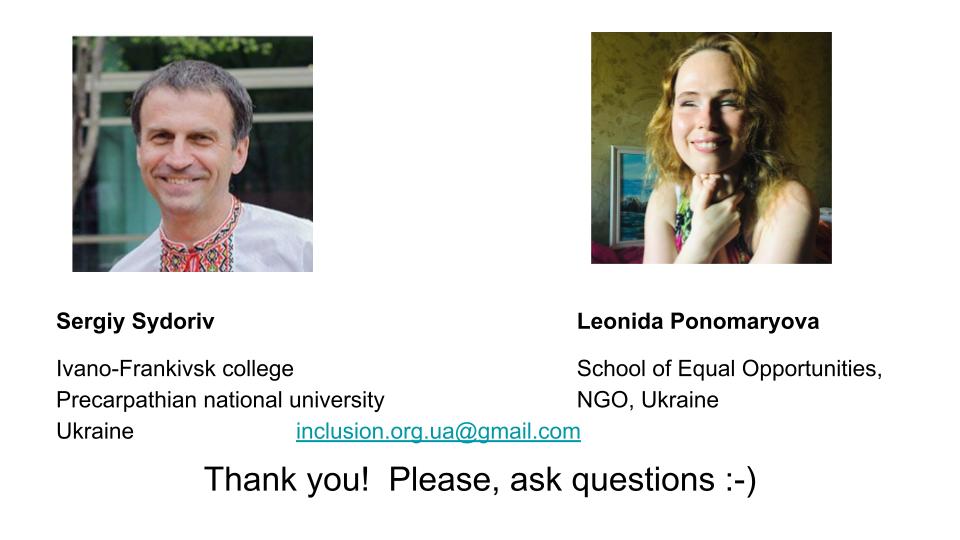The Dignity of Work, an online forum hosted by the Institute on Community Integration, University of Minnesota (USA) became a place to gather key international experts from diverse academic, government and non-government organizations, parents, employees and employers to discuss challenges and opportunities facing people with disabilities around the world.
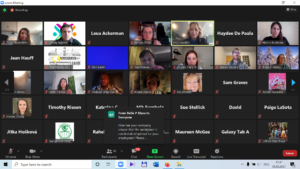
People with disabilities experience difficulties in many areas of social life: education, employment, travel, leisure activities, active participation in the life of community. It became especially noticeable in 2020. The pandemic, the subsequent economic recession, needs of social distancing – these factors have deteriorated greatly the quality of life and created new barriers. In order to survive, humanity had to lock down many of its activities and halt common social services.
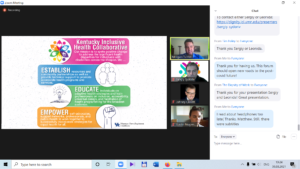
Choosing to work and be supported in this choice is a fundamental human right for all people regardless of race, gender, disability. To live with dignity means that every person has the right to work without discrimination and is entitled to fair wages and equal pay.
At the same time the distancing that everybody had to experience during the lockdown created some opportunities for people with disabilities to show their effectiveness and prove their skills. Society needs to create and ensure conditions for people with disabilities to be able to work and express their potential. Assistive equipment and technologies, support and understanding provide social connections and play an important role in both individual self-worth and society.
The forum highlighted global success stories, the families behind them, and the employers who have discovered the power of a diverse workforce.
Renáta Tichá & Brian Abery gathered key experts from the USA, Peru, Brazil, Tanzania, Japan, Vietnam, Russia, Czech Republic and Ukraine.
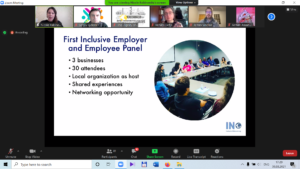
The speakers and their presentations:
Olivia Hester Check-In/Check-Out: Performance Feedback During Vocational Training for Youth with Disabilities
Carly Gilson, David Blustein and James Sinclair Work as a Means to Thrive, Survive, and Feel Alive
Nicole Rabinowitz, Tasya Kelen, Jess Waller, organization employees Inclusive Employer and Employee Panel
Matthew Schuelka Visualizing Lived-Experience: Mapping and Geographical Tools to Better Understand and Analyze the Economic and Social Participation of Adults with Disabilities in Bhutan
Morgan Turner Morgan’s Musings: My successful journey to inclusive employment in higher education
Stephanie Fitzgerald, Pierre Young, former student Transition: What is it and what does it look like?
Alyssa Klein, Sheila Koenig, Heather Kosec, Crystal Underdahl and two high school students The Power of Youth Work Experience
Alli Strong-Martin and Ashley Oolman Towards Equity: Confronting Capitalist Notions of Value, for Radical Inclusion in Employment
Sam Graves and Ben Cantlon My Employment
Liliana Mayo Systems and Stories in Peru: Employers on hiring quality people with autism, talk about social and economic systems and share stories of life during COVID-19
Emanuelle Dutra Fernandes de Souza and Emily Klinger Building Inclusion through Leadership and Skills Training
Dickson J. Shekivuli Assessment of Afterschool Vocational Education Training Programmes for Children with Disabilities
Yuka Ichiki Promoting an inclusive work environment: Endeavor of Sega Sammy Holdings
Nguyen Viet Nhan, Iris Drower Community Building for Valuable Lives to be Lived
Yulia Lipes and Nikolay Filippov Special Pottery and Special Artists
Anna Chistokhina Difficulties and prospects of organizing employment for people with mental disabilities
Jan Šiška and Šárka Káňová Disability, Employment and Citizenship in Europe
Sergiy Sydoriv and Leonida Ponomarova Education, Employment, Policy: Three Stories of Inclusion in Ukraine
At the networking sessions participants discussed strategies employers use to hire and retain people with disabilities, preparation of youth with disabilities for employment, overcoming barriers when seeking competitive employment, empowerment of people with disabilities through employment.
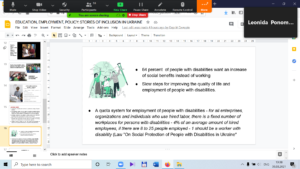
The presenters from Ukraine talked about action steps to be made in education, employment and policy. These areas are interconnected and each action has its ultimate effect in all.
- Inclusive Education Lab basing in Ivano-Frankivsk college, Precarpathian national university that was created after the completion of Without borders: sustaining and supporting inclusive education learning community project. The Lab is expected to have the capacity to equip students, teachers and parents with an understanding of and ability to effectively implement IE practices. One of the areas of the Lab activities is transition of students with disabilities to independent living, further study and employment. The Lab provides pre-service and in-service teachers with the resources developed as the result of the project activities and welcomes people with disabilities to study and work in the college, participate in workshops and share experience.
- Cooperation with School of Equal Opportunities, the NGO that promotes human rights and empowers youth, women and persons with disabilities on a grass-root and government levels.
- The School’s project “Those who Inspire” connected us with a teacher and politician with disability who strives to make systemic changes on a government policy level.
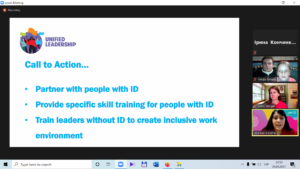
And yes, Leonida, “Nothing About Us Without Us.”

